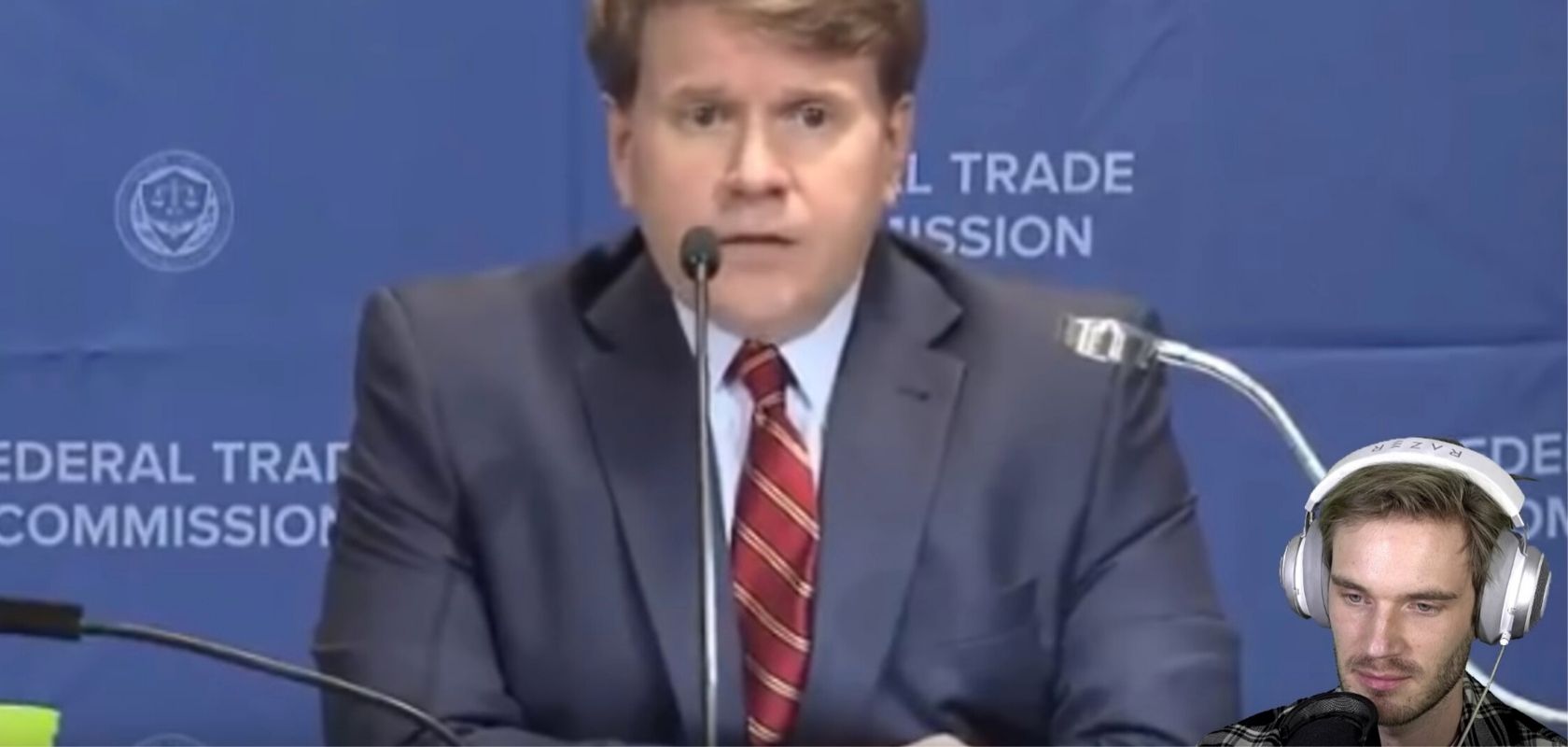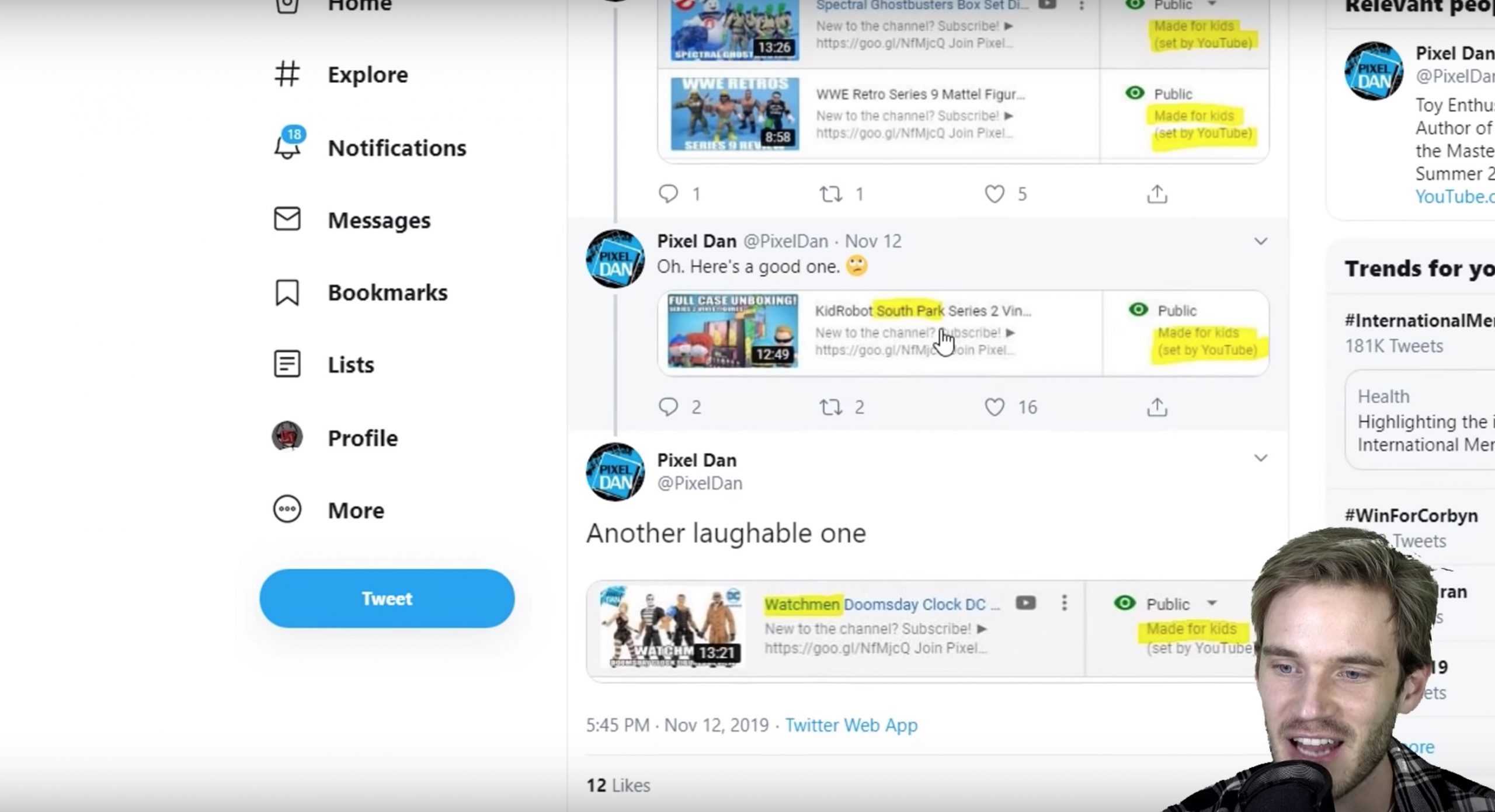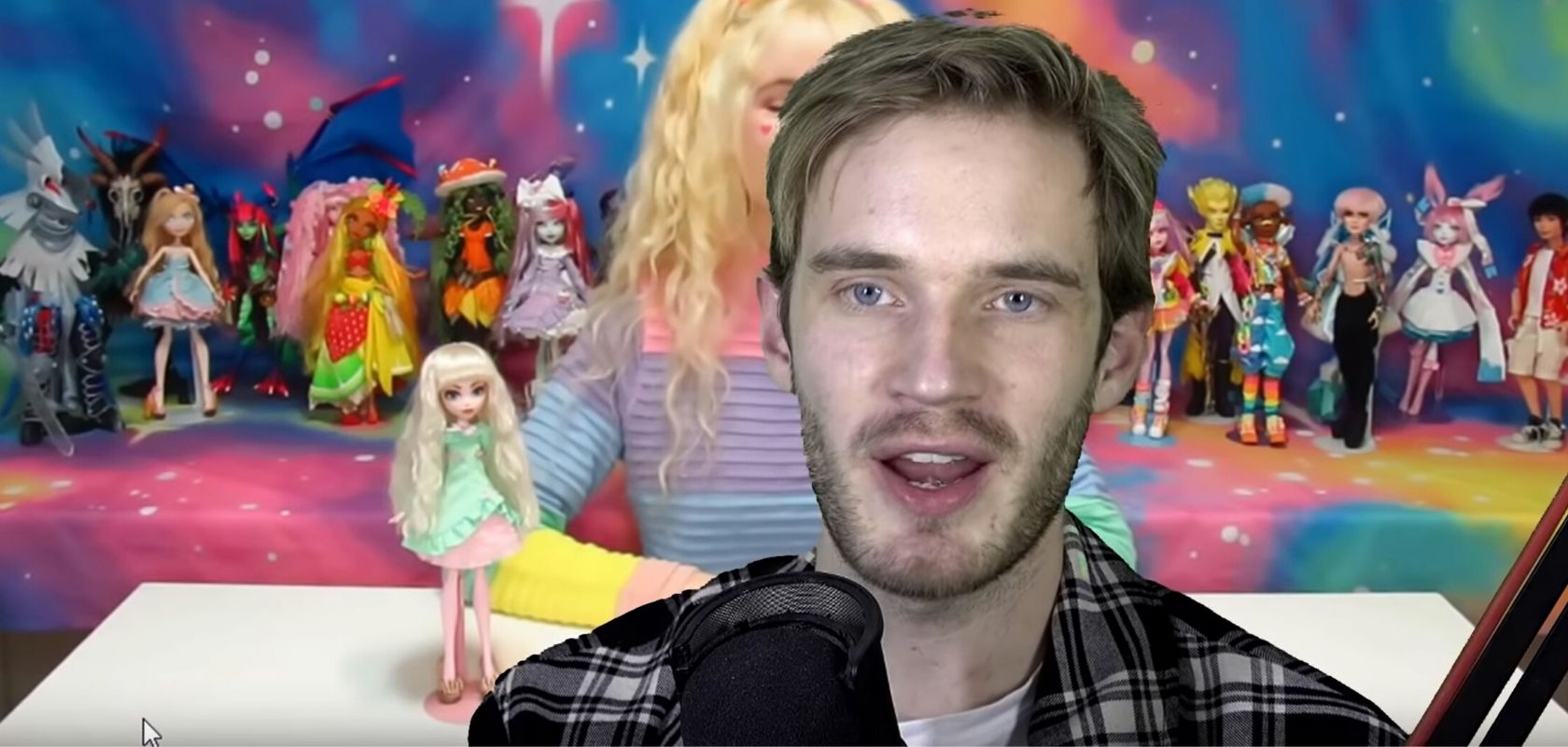In the latest episode of PewNews, PewDiePie explained how the FTC regulations are starting to affect content creators on the platform. This story traces back to September when the FTC fined YouTube’s parent company, Google, 170 million dollars for collecting children’s data.
The new agreement surrounding the COPPA regulations (Children’s Online Privacy Protection Act) will soon come into force. The proposals are meant to protect children under 13 years of age from data collection by operators or websites, something that Google is guilty of.

PewDiePie points out the fact that despite YouTube requiring users to be older than 13 in order to sign up on the platform, kids are still watching YouTube. Additionally, there is a dedicated YouTube’s Kids app that doesn’t collect information.
However, this hasn’t prevented the Federal Trade Commission from making a decision that will not only affect YouTube itself, but also every single creator on the platform that is making a living out of it.
He then goes to explain how now creators will have to make a choice every time they upload content on the platform.
There is a new setting that tells YouTube if the content was made for kids or not. Additionally, YouTubers can automatically set their channels as “made for kids” or “not made for kids”, which – in theory – will save them the trouble of flagging every single video.

The hard part to swallow is that videos that get flagged as made for kids, will not get recommended by the platform, the revenue will be severely cut (from 60% to 90% less), and the comments will be disabled in the videos.
YouTube has already addressed this topic and published a video explaining the upcoming changes, and there is a very worrisome detail: the platform will be using machine learning to automatically flag content that it decides is made for children.
This poses more harm than good, as videos that kids might enjoy are getting flagged despite not being the author’s intention, e.g., animations, figurine reviews, and games, etc.
Given that YouTube once strived for the eradication of “edgy” content on the platform, seeing it replaced for content more suitable for all ages (and therefore for more advertisers), the lines of what is made for kids have blurred, as creators had to adapt to the new rules or get demonetized again.

PewDiePie also questions what is going to happen to channels that are targeted towards children – like, for instance, those of Morgz and Jake Paul, which have an audience mostly comprised of kids between 8 and 16 years old; hence the title of the video “Morgz is Cancelled.”
On top of that, the FTC reserves the right to sue content creators that upload videos for kids that are not marked as such. In this sense, the creator could face a fine of over $42,000 per video. As PewDiePie himself puts it:
“I have 5000 videos on my channel, if 24 videos get deemed by FTC as targeted for kids, then I owe them one million dollars. Epic.”
He closed the topic by announcing that as of now, his followers are 19-years-old instead of 9-years-old, taking a humorous jab at those who say that PewDiePie’s viewers are an army of 9-year-olds.












